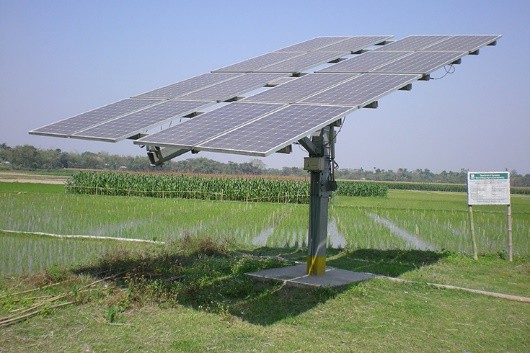mail info@star-centre.org
The 2013 policy in Bhutan, known as the Alternative Renewable Energy Policy (AREP), is focused on fostering the growth and incorporation of different renewable energy sources such as solar energy. The target of attaining 5 MW of solar PV capacity by 2025 is established in the policy, along with incentives and subsidies to assist with solar installations. Furthermore, decentralized solar energy systems are encouraged to supply electricity in isolated regions, decreasing reliance on grid-connected power and improving energy stability. The policy includes regulatory backing, training programs, and outreach efforts to encourage solar energy initiatives and highlight their advantages. Consequently, there has been a rise in solar panel setups throughout Bhutan, particularly in remote regions, aiding in improved energy stability, decreased greenhouse gas releases, and backing the nation's sustainability objectives. Overall, the AREP 2013 has played a key role in promoting the use of solar energy in Bhutan.
Read more: Template (moenr.gov.bt)
The Bhutan Electricity Act of 2001 encourages the development of the solar energy industry through different measures. The creation of the Bhutan Electricity Authority (BEA) aims to oversee renewable energy sources such as solar power and ensure adherence to set standards. The Act makes it easier for power generation companies to obtain licenses, promoting private sector investments in solar projects. BEA establishes rates to make solar power financially feasible, drawing in increased investments. The legislation encourages the incorporation of solar energy into the country's electricity grid for power plants connected to the grid. By concentrating on the electricity industry, it indirectly supports the growth and incorporation of solar projects, thus promoting renewable energy.
Read more: Microsoft Word - Electricity Act 2001.doc (asiapacificenergy.org)
Energy Auditing & Reporting Guidelines help promote solar energy adoption by identifying buildings with solar potential, tracking performance post-installation, providing financial analysis for ROI evaluation, ensuring regulatory compliance, recommending energy efficiency improvements, and supporting funding applications.
Read more: Energy Auditing & Reporting Guidelines for Buildings (moenr.gov.bt)
Energy Auditing & Reporting Guidelines for Industries are crucial for promoting the adoption of solar energy in the industrial sector. These guidelines help identify solar opportunities by analyzing energy consumption patterns and pinpointing areas for solar installations. They also include benchmarking tools to track energy performance improvements post-solar installation and ensure optimal system performance. Financial analysis provided by energy audits, including upfront costs and projected savings, aids decision-makers in evaluating ROI for solar projects. Regulatory compliance ensures that solar installations meet safety standards and adhere to local regulations. Additionally, audits identify energy efficiency measures to complement solar installations, enhancing overall energy performance. Detailed audit reports can also support industry in securing funding and incentives for solar projects.
Read more: Energy Auditing & Reporting Guidelines for Industries (moenr.gov.bt)

